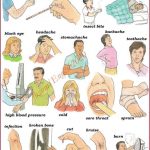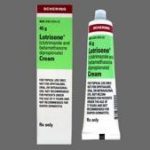tolterodine – oral, Detrol
MEDICATION USES: This medication is used to treat an overactive bladder. By relaxing the muscles in the bladder, tolterodine improves your ability to control urination. It helps reduce urine leakage, the urgency to urinate, and frequent bathroom trips. This medication belongs to the antispasmodics drug class.
HOW TO USE: Read the Patient Information Leaflet if available from your pharmacist before starting tolterodine. Take this medication orally, with or without food, as directed by your doctor, usually twice a day. Use it regularly at the same times each day for optimal benefit. The dosage is based on your medical condition (especially kidney and liver disease), response to treatment, and use of interacting medicines. Do not exceed the recommended dose or take it more frequently than directed. Consult your doctor or pharmacist for more details. Inform your doctor if your condition persists or worsens.
SIDE EFFECTS: Possible side effects may include dry mouth, dry eyes, headache, constipation, stomach upset/pain, dizziness, drowsiness, tiredness, or blurred vision. If these effects persist or worsen, inform your doctor or pharmacist promptly. To relieve dry mouth, suck sugarless hard candy or ice chips, chew sugarless gum, drink water, or use a saliva substitute. To prevent constipation, eat a high-fiber diet, drink plenty of water, and exercise. If you experience constipation while using this drug, consult your pharmacist for help in selecting a laxative. Inform your doctor immediately if you experience vision changes, severe stomach/abdominal pain, trouble urinating, signs of kidney infection, or serious side effects such as fast/slow/irregular heartbeat, severe dizziness, fainting, or allergic reactions. This is not a complete list of possible side effects. If you notice any other effects, contact your doctor or pharmacist.
PRECAUTIONS: Before taking tolterodine, inform your doctor or pharmacist if you are allergic to it or have any other allergies. Discuss your medical history, especially any problems emptying your bladder, severe blockage of stomach/intestines, glaucoma, stomach/intestinal disease, severe constipation, kidney disease, liver disease, or a certain muscle disease. Tolterodine may cause a condition that affects heart rhythm, so inform your doctor if you have any heart problems or conditions that may increase the risk. Low levels of potassium or magnesium in the blood may also increase the risk. Consult your doctor before using tolterodine if you are pregnant, breastfeeding, or unsure about potential interactions with other medications or substances that may cause drowsiness. Older adults may be more sensitive to side effects such as drowsiness, confusion, constipation, or trouble urinating. Avoid activities that may cause overheating. This medication may decrease your ability to sweat, making you more likely to get heat stroke. Store at room temperature away from light and moisture. Do not flush medications down the toilet or pour them into a drain. Properly discard this product when it is expired or no longer needed.
DRUG INTERACTIONS: Inform your doctor or pharmacist about all the medications you use, including prescription/nonprescription drugs and herbal products. Some drugs may interact with tolterodine and increase the risk of serious side effects. Check the labels on all your medicines. Avoid starting, stopping, or changing the dosage of any medicines without your doctor’s approval. Inform your doctor or pharmacist if you are taking other products that cause drowsiness.
OVERDOSE: If overdose is suspected, contact a poison control center or emergency room immediately. Symptoms of overdose include abnormal heart rhythm, fainting, unusual excitement, and mental/mood changes.
NOTES: Do not share this medication with others.
MISSED DOSE: If you miss a dose, use it as soon as you remember. If it is near the time of the next dose, skip the missed dose and resume your usual schedule. Do not double the dose.
STORAGE: Store at room temperature away from light and moisture. Keep all medications away from children and pets.
Report Problems to the FDA:
If you experience negative side effects from prescription drugs, report them to the FDA. Visit the FDA MedWatch website or call 1-800-FDA-1088.
CONDITIONS OF USE: The information in this database supplements the expertise and judgment of healthcare professionals and is not intended to cover all uses, directions, precautions, drug interactions, or adverse effects. Consult a healthcare professional before taking any drug, changing your diet, or starting or discontinuing any course of treatment.


